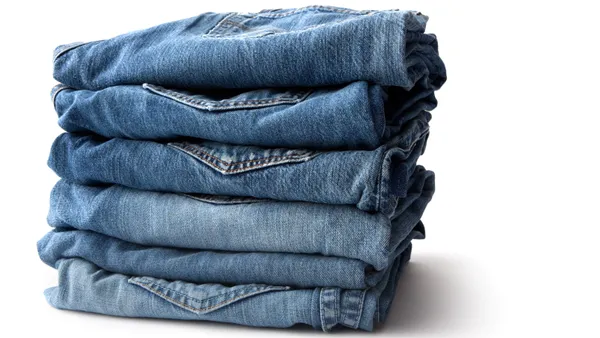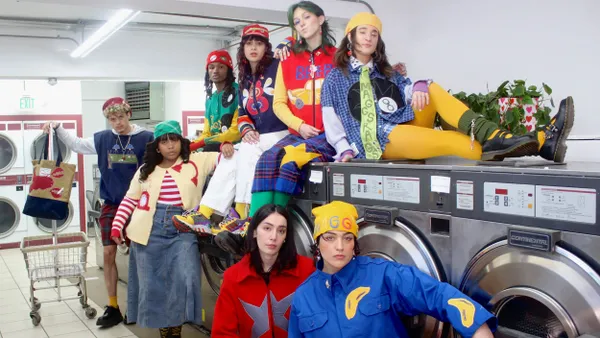Dive Brief:
- Nonprofit group Fashion Revolution is holding its 2025 advocacy event this week with the theme of ‘Think Globally, Act Locally,’ according to a press release.
- Fashion Revolution is using the campaign as a way to raise awareness for a rolling back of regulations geared toward protecting the environment and fashion industry from waste and pollution, per the release.
- Set to take place April 22 through April 27, the 10th annual Fashion Revolution Week includes more than 2,000 events in 80 countries. This includes the second annual ‘Mend in Public Day’ on April 26, when it organizes citizen groups around the world to repair used clothing in protest of overproduction and overconsumption, per the release.
Dive Insight:
According to Sarah Jay, executive director of Fashion Revolution, the organization believes change within the garment industry needs to happen on a local level, because each country has its own set of regulations. There should be stricter legislation on human rights, plastic usage, pollution, decarbonization and corporate reporting, said Jay.
“The materials we’ve created [for Fashion Revolution Week] aim to encourage a local approach to all activities in recognition of the different ways fashion industry impacts are experienced around the world,” Jay said in an email. “The playing field is not level. Different countries, and different communities play different roles in the global system, and will have different priorities in terms of addressing industry challenges.”
During the week-long event, the organization will encourage participants to contact local government representatives and ask them to take action on issues related to making the fashion industry safer for garment workers and the environment.
One topic is a pending omnibus proposal before the European Commission that includes sweeping changes to the Corporate Sustainability Due Diligence Directive, Jay said. If adopted, the proposed measure is designed to “cut red tape” and allow companies to shed certain barriers and regulations to help them feel more competitive. However, the change could threaten the livelihoods of 600 million smallholders worldwide, including garment and textile workers, Jay said.
“This is the vertical where we need, as a society, to come together and combat corporate impunity by pushing for strict legislation on human rights, pollution and the rights of nature, as well as corporate disclosures,” Jay said.
Since Fashion Revolution’s founding in 2013, progress has been made in terms of transparency by manufacturers and brands, Jay said. In 2023, 118 brands published a list of their first-tier manufacturers, compared to five in 2016, according to the organization’s Transparency Index and What Fuels Fashion reports.
Fashion Revolution was launched by fashion activists Carry Somers and Orsola de Castro following the Rana Plaza factory collapse in Bangladesh, which resulted in more than 1,100 deaths. The nonprofit’s stated purpose is to call for improved standards and better working conditions in the industry.











